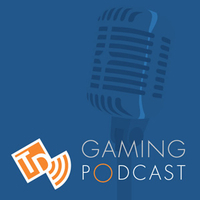The gaming podcast of the week, the best gaming podcast on the planet! No, just kidding. This week we’re taking a look back at Starfox, we’re reading off some great community questions, covering history on Dave Arneson and hitting up some news:
 Will Wright Leaves Electronic Arts
Will Wright Leaves Electronic Arts- Nintendo Wii Bringing Video Download
- Nintendo Wii Manufacturing Costs down 45% since launch
- RockStar connecting Flash games and the Nintendo DS
- Dave Arneson Dies at Age 61
- Electronic Arts Want Their Brass Knuckles Back
Thanks for the great responses this week, as always, we’re also asking a question of the week: Is anyone else angry that Wizards of the Coast came out of nowhere to buy TSR, Inc back in the day?

I wasn’t pissed off when the sale was made. I was mildly disturbed when Wizards of the Coast said they’d be revamping and fixing the game – by allowing things like level 20 halfling mage-slash-thief-slash-paladin-slash-monk-slash-fighters.
I became angry when 4.0 game out and they succeeded in turning it into a computer game version of D&D, and sucking the life out of the actual roleplaying. Computer RPGs are the way they are because they LACK the ability to have an intelligent GM. It’s the tail wagging the dog now.
At least GURPS is still out there.
3.0 was my first experience, so I had no ill will toward WotC. It wasn’t until Hasbro took over that I got ticked. And yeah, 4.0 is utterly pointless for pen-and-paper purposes, in my opinion.
Also, not to get needlessly nitpicky or anything, but I don’t think you could actually be a thief/paladin/monk, could you? Unless that was a 3.5 change. ‘:)
2.0 was the best. Period.